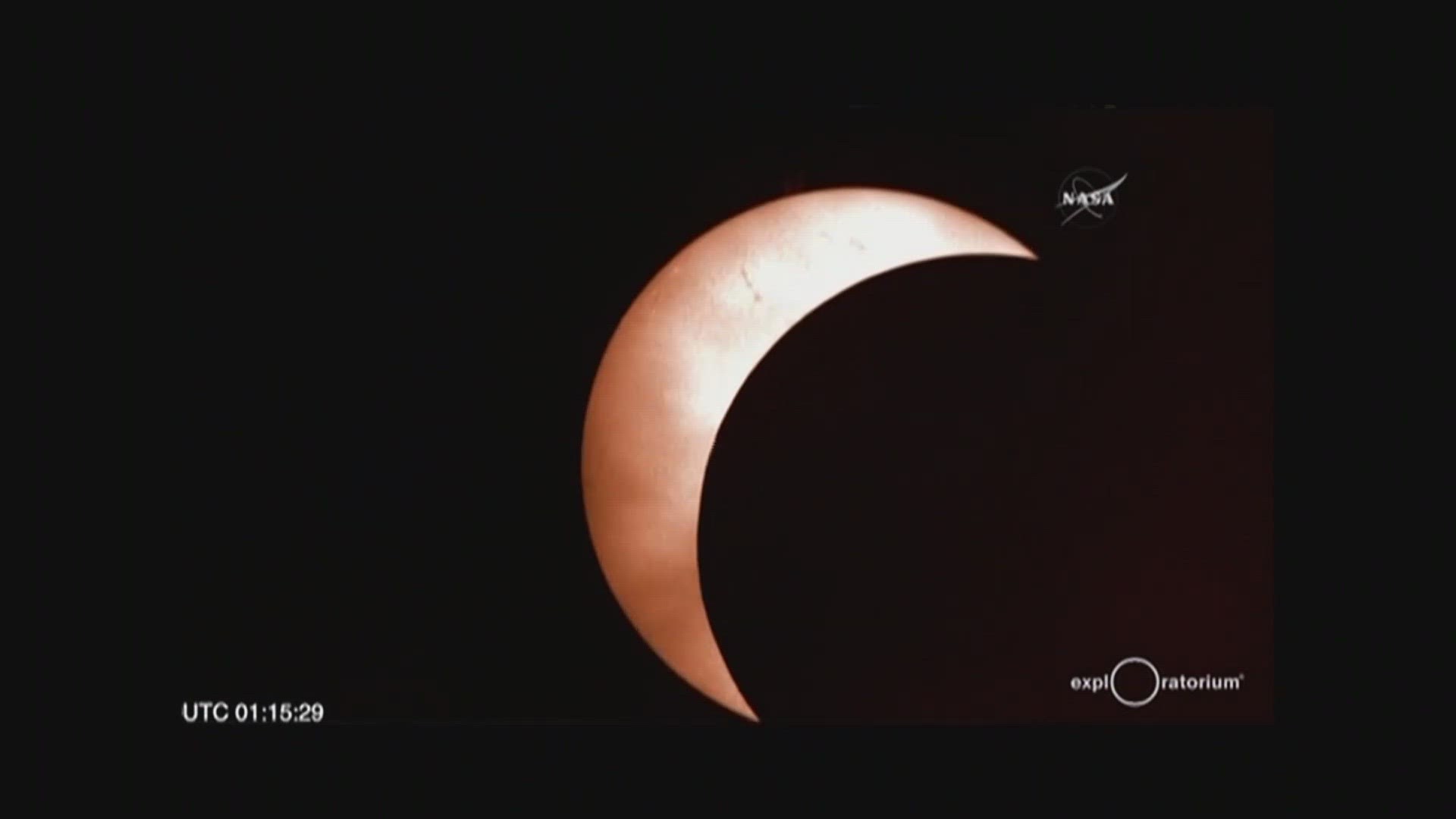COBB COUNTY, Ga. — With the start of a new school year right around the corner, Cobb County Schools is making parents aware of a rather unusual calendar change on its schedule.
Monday, April 8, will be an early-release day for students of all grade levels. The reason? That day brings with it a total solar eclipse across North America.
The district specifically states there are "concerns over student safety" in its email to parents, adding "after-school programs will occur as they normally do, with students kept inside the building."
It's worth noting April 8 is also the day after spring break for students.
Obviously, it's never a good idea to stare directly into a solar eclipse, for fear of causing damage to one's eye.
However, NASA says the total solar eclipse will not pass directly over Georgia. If anything, it'll make the sky just a tad dimmer.
A map of the eclipse form AccuWeather shows the path of totality (the area that will most directly see the effects of the cosmic phenomenon) coming nowhere near Georgia. Instead, we'll only see a partial eclipse.
A spokesperson with the district sent the following statement:
“While experiencing a solar eclipse can be memorable and educational, looking directly at an eclipse can seriously damage a student’s eyes. We are providing Cobb families as much time, information, and flexibility as possible so they can make the best health decisions for their children.”
Yet, some parents remain baffled by the decision.
"It's ridiculous. When I grew up in school and when my wife grew up in school, when an eclipse came or something like that, it was a big day, it was a science day, they'd set up all the stuff and you'd get to watch the eclipse," Cobb County parent Greg Stewart said.
Erin Wells Bonning, the director of the Emory Planetarium, said while eye damage is a safety concern with eclipses, it's still a perfect opportunity for children to learn.
“I have no idea why they’re closing schools. Often schools will make a big event of it. That's what happened in a lot of school systems in 2017 where they would have eclipse shades or a special projectors to project the eclipse onto a screen or onto the ground," Bonning said. "It takes about a little over an hour from end to end to really see that, see the impressive bits. I'm not sure why you would close school for that unless to give students and their families an opportunity to really focus on it or or something like that.”
She added that, in Georgia, anywhere from 70-85% of the sun is going to be covered by the moon in April, as well as October 14 of this year.
As for the safety component, Bonning said it's only a concern if you are looking at the sun with an unprotected eye.
"You can view the eclipse through a pinhole camera, you put a pin in a hole in a piece of cardboard or if you’re in a shaded area, the little streams of light that come between the leaves, you’ll be able to see in each of those little spots an eclipse,” she explained.
Meanwhile, Cobb County Schools said it notified parents with ample time so that they can make the best decision for their kids.

